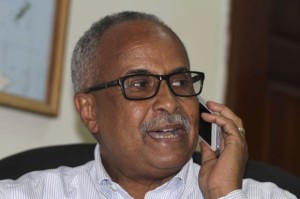News agency Reuters claims it has seen a UN report describing how money at the Central Bank of Somalia is not used to run government institutions in the war-torn East African country, with an average 80 percent of withdrawals made for private purposes.
The confidential report by the UN Group of Experts to the Security Council’s Somalia and Eritrea sanctions committee blamed a patronage system – dubbed the “khaki envelope” practice after the colour of the stationery carried to the Ministry of Finance – for preventing the creation of state institutions.
“In this context, the fiduciary agency managed by PricewaterhouseCoopers was reduced to a transfer agent that could not ensure accountability of funds once they reached the Somali government,” says the report. “Indeed, of $16.9 million transferred by PWC to the Central Bank, $12 million could not be traced,” it said. “Key to these irregularities has been the current governor of the Central Bank, Abdusalam Omer.”
Omer, 59, is a dual Somali-US national who left Somalia as a teenager and returned in January this year to become governor of the Central Bank.
The UN report says all bank decisions were made by Omer because there were no board members in place and the bank does not operate as a government body subject to policy decisions or oversight from integrity institutions and parliament.
“On average, some 80 percent of withdrawals from the Central Bank are made for private purposes and not for the running of government, representing a patronage system and a set of social relations that defy institutionalization of the state,” it says.










